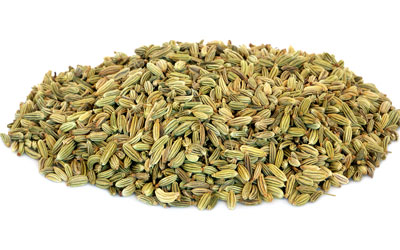Hirsutism is a condition characterized by excessive hair growth in women, affecting about 10% of those of reproductive age. The management of hirsutism, particularly idiopathic hirsutism where no specific cause is identified, can be prolonged and challenging. Traditional treatments range from various hair removal methods to hormonal therapies, which may come with significant side effects and costs. This study aimed to evaluate the efficacy of fennel in treating hirsutism, offering a potentially safer and cost-effective alternative.
The Study
This randomized clinical trial was conducted on 44 women aged 15-45 years, diagnosed with mild to moderate idiopathic hirsutism limited to the face. The participants were randomly divided into two groups: the intervention group received a 3% fennel gel, while the control group received a placebo. The trial lasted for 24 weeks.
Researchers primarily focused on evaluating the effects of fennel on hair thickness, measured in micrometers using a microscope. They also monitored potential side effects.
The Results
At the end of the treatment period, the hair thickness in the fennel group reduced significantly by 23%, from 97.95 to 75.6 micrometers. In contrast, the placebo group did not show a significant change in hair thickness.
Some participants reported side effects—three in the fennel group and one in the placebo group experienced itching, and three in the fennel group and one in the placebo group reported both irritation and itching. However, these differences were not statistically significant.
What Does this Mean?
The findings of this study suggest that fennel gel helps reduce hair thickness in women with hirsutism. Its effectiveness, coupled with a lack of significant side effects, indicates that fennel could be a safe and potent treatment for this condition.
Fennel is widely used for its medicinal properties, including its estrogenic effects, which might explain its efficacy in reducing hirsutism. While the exact mechanism by which fennel reduces hair thickness remains unclear, it is believed that its estrogenic compounds may interfere with androgen metabolism in hair follicles.
This study opens the door for more extensive clinical trials to validate these findings and potentially introduce fennel gel as a standard treatment in dermatological and endocrinological practice. Other herbs with hormone-regulating properties include maca, aguaje, and ashwagandha.
Sources
- Caspian Journal of Internal Medicine, The effect of fennel (Foeniculum vulgare) gel 3% in decreasing hair thickness in idiopathic mild to moderate hirsutism, A randomized placebo controlled clinical trial, 2014
Footnotes:
- International Journal of Women's Dermatology. (2017). Endocrine evaluation of hirsutism. Retrieved July 16, 2024, from https://www.ncbi.nlm.nih.gov/pmc/articles/PMC5419053/





